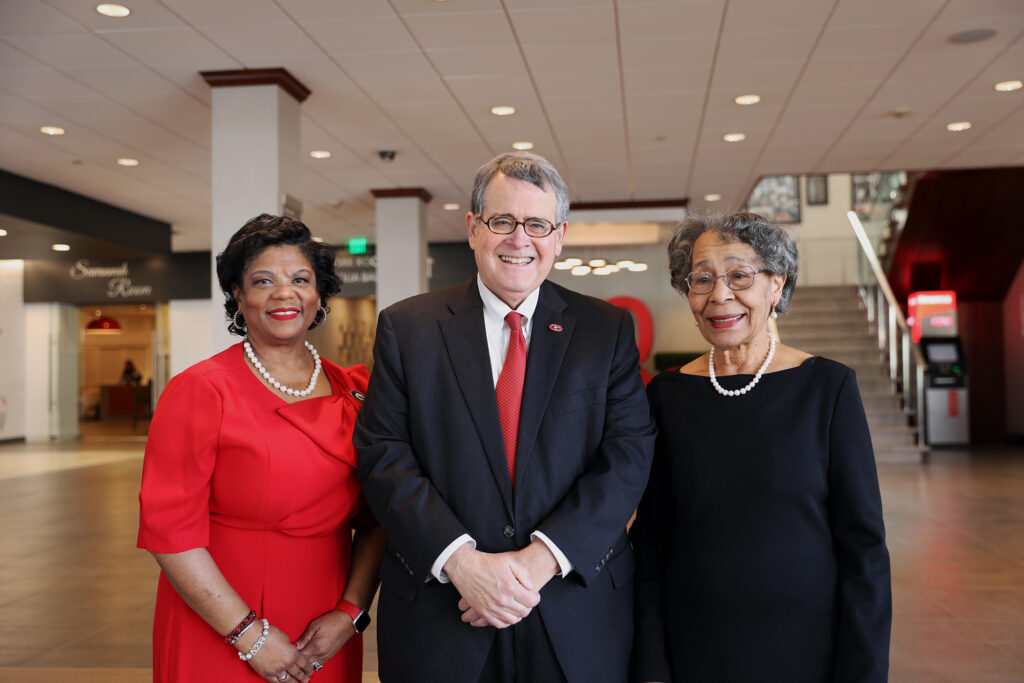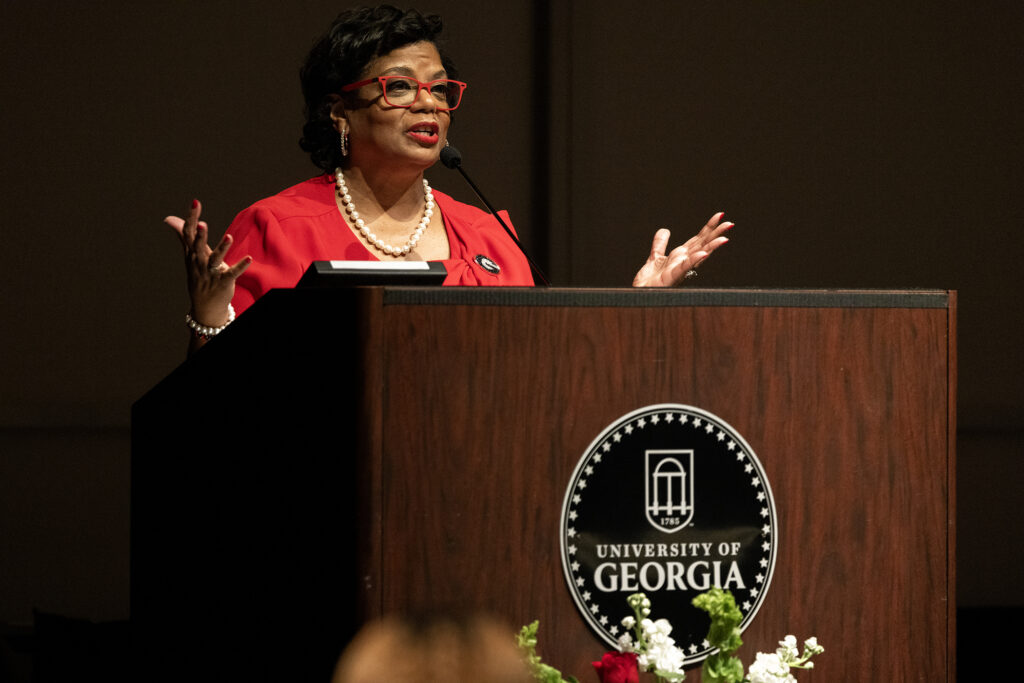What does it take to be a quiet trailblazer?
Mary Frances Early set an example by helping to integrate the University of Georgia in 1961, and her friend Yvette K. Daniels laid out the roadmap to being a quiet trailblazer as the keynote speaker of the 24th annual Mary Frances Early Lecture, held Feb. 6 at the University of Georgia Center for Continuing Education & Hotel.
“I want you to be encouraged by this—not afraid of it, not sad about it—because she had no regrets. She’s said she would do it all again because she knows how important it is,” said Daniels, who currently serves as the director of university relations for the Georgia Department of Public Health. “You should be encouraged by this roadmap she has created.”
Although both women have strong ties to the university, Daniels and Early actually met at their hair salon several years ago. They quickly bonded over their connections, particularly through UGA and ways to help students.
“I knew Mary Frances Early was a very special lady from that very first appointment at the hair salon,” Daniels said.
Since that first conversation, Daniels has made a point to truly listen to every pearl of wisdom she’s heard from Early. Together, that advice lays out a path to making a difference.
First, Daniels encouraged the audience to step outside their comfort zone. She pointed out that Early doesn’t fear taking chances, like taking a train to New York City by herself. Daniels told students to embrace being uncomfortable because that will allow them to take advantage of opportunities that might not come their way again.
“If she can accomplish what she’s accomplished, living in that world, you all can do so much. There are no excuses,” Daniels said.
Daniels also pointed out that Early knew how to take advice from others and take initiative.
“Once you recognize that people are trying to support you, accept that support. It will take you far,” Daniels said.
It’s equally important to take advantage of resources. Early had the opportunity to learn several instruments, and that served her well teaching music later on.
“She understood the assignment. She knew what would have to happen to go to the best school, to get a scholarship. She took advantage of the resources available to her,” Daniels said.
Daniels reminded the audience to push themselves and not worry about what anyone else says.
“Your race is not against anybody else but you,” Daniels said. “Your race to be excellent is your race against yourself. If you keep that as your focus, much like Mary Frances Early, you fill find success.”
Daniels has blazed a few trails herself, including serving as the 77th president of the UGA Alumni Association and the first Black female president of the organization.
“When I was doing any of those things, did I think I was a trailblazer? Absolutely not. I just knew I was trying to run my best race, do my best work, and hopefully help some people along the way,” said Daniels.

Shown, from left, are Yvette K. Daniels, UGA President Jere W. Morehead and Mary Frances Early at a luncheon prior to the lecture named in Early’s honor. (Photo by Nikki Mottley)
That same quiet termination is still in Early, too.
“You cannot sit back on your laurels, even when you have successes, and say, ‘I have arrived.’ You never arrive. You always have a responsibility to keep moving forward,” Early said.
This year marks the 62nd anniversary of Early’s graduation in 1962 as the first African American to earn a graduate degree from UGA.
“Ms. Early, I want to thank you for all that you continue to do for the University of Georgia. In particular, I want to thank you for your courage, for your leadership, for your loyalty and for your unwavering friendship and support. It means so much to each and every one of us,” said UGA President Jere W. Morehead.
The lecture series honors Early’s legacy and recognizes her dedication to making UGA an institution of higher learning for all people. It also strives to demonstrate the progress that has been made in achieving her vision as well as to identify the work that remains to be done.
The Mary Frances Early Lecture, also designated as a Signature Lecture, is sponsored by the Graduate School, Graduate and Professional Scholars, the Mary Frances Early College of Education, the Office of Institutional Diversity and the Office of the President.
